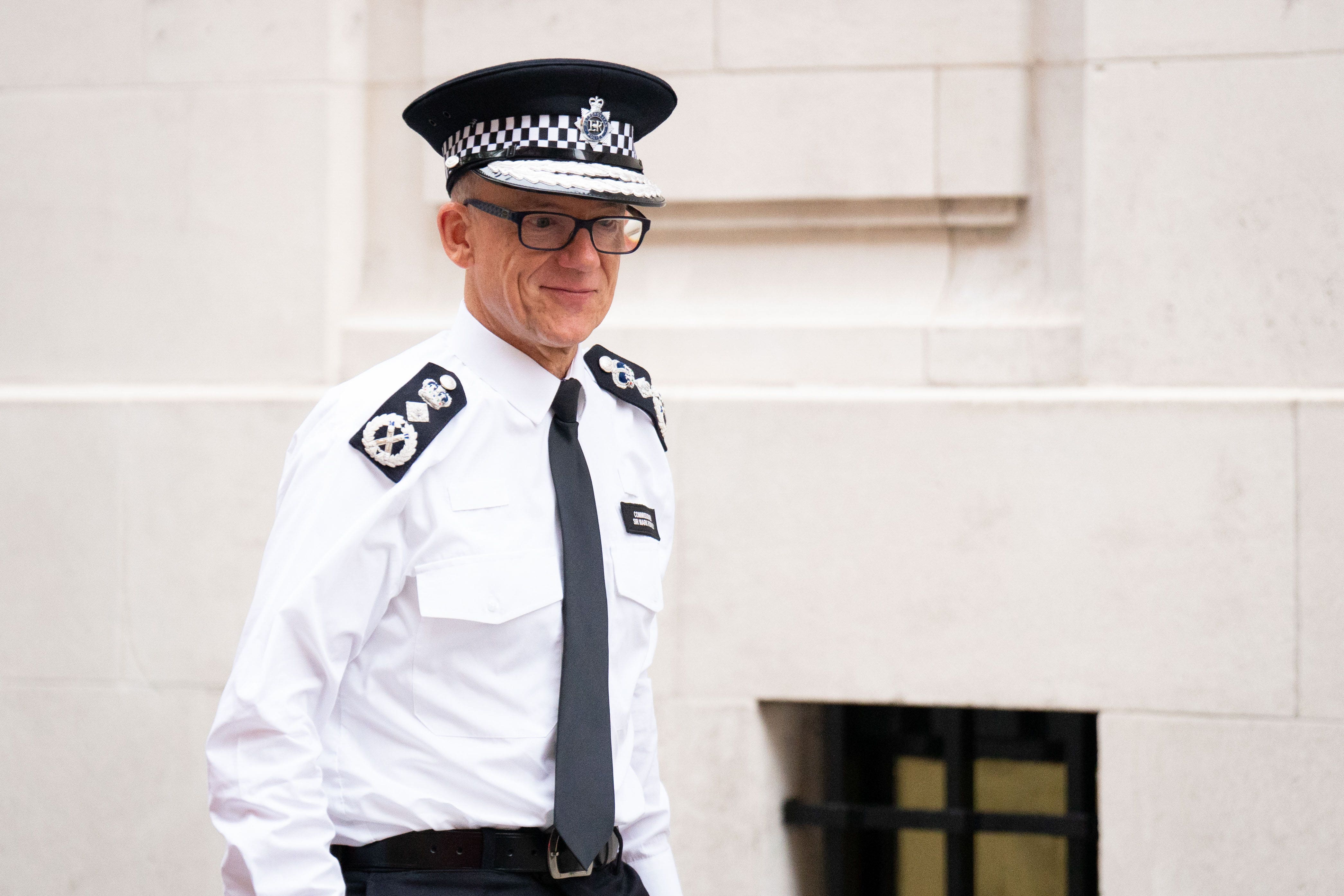Met Police boss warns public sector strikes could hinder crime-fighting
Strikes could cause an ‘overflow’ of work for officers, Sir Mark Rowley says

Your support helps us to tell the story
From reproductive rights to climate change to Big Tech, The Independent is on the ground when the story is developing. Whether it's investigating the financials of Elon Musk's pro-Trump PAC or producing our latest documentary, 'The A Word', which shines a light on the American women fighting for reproductive rights, we know how important it is to parse out the facts from the messaging.
At such a critical moment in US history, we need reporters on the ground. Your donation allows us to keep sending journalists to speak to both sides of the story.
The Independent is trusted by Americans across the entire political spectrum. And unlike many other quality news outlets, we choose not to lock Americans out of our reporting and analysis with paywalls. We believe quality journalism should be available to everyone, paid for by those who can afford it.
Your support makes all the difference.The head of the Metropolitan Police has warned that public sector strikes could hinder crime-fighting by causing an “overflow” of work for officers.
Sir Mark Rowley said police are already being sucked into helping with health and social care and he fears this could be “exacerbated” if other public services strike, the Telegraph reports.
Only 22 per cent of calls to the Met Police relate to crime and more than half of officers’ time on shifts involves keeping an eye on people with mental health issues in hospital A&E departments or in custody, Sir Mark told the newspaper.
The Met Police commissioner said he intends to withdraw officers from some of these duties.
Sir Mark said police are not allowed to take industrial action and could become overstretched if other agencies they work with choose to strike.
Total police funding has increased by up to £1.1 billion this year, providing up to £16.9 billion for the policing system
“If agencies we work closely with strike, it’s hard to imagine that more work won’t potentially overflow in our direction unless we’re very robust about it,” he told the Telegraph.
He reportedly said public sector strikes would “hurt officers all the more” because they “are not allowed to strike, feel they are not fairly rewarded and they’re the ones who will stay around 24/7”.
The Royal College of Nursing (RCN) announced on Wednesday that its members in the majority of NHS employers across the UK have backed industrial action.
Other health worker unions including Unison and the GMB will announce the results of strike ballots before the end of the month among staff including ambulance drivers and paramedics, hospital porters and cleaners.
The Public and Commercial Services union (PCS) has said over 100,000 civil servants have voted to strike in a dispute over pay, pensions and jobs.
The PCS said the legal threshold for industrial action had been reached in 126 separate areas, covering workers including driving test examiners, border force officials and Jobcentre staff.
Sir Mark also urged the government to “invest urgently in our fragile foundations”, saying the Met Police requires a 27 per cent funding boost “just to stand still” in comparison with a decade ago.
He welcomed the government paying for more police officers but said this had been partly funded by paying officers less in real terms and “hollowing out” the Met Police’s support services.
The Home Office has been approached for comment.
In a press release at the end of October, the Home Office stated: “Total police funding has increased by up to £1.1 billion this year, providing up to £16.9 billion for the policing system.
“In addition every police officer received a £1.9k uplift to their salary this year which equalled up to an 8.8 per cent increase for those on the lower salary bands.”